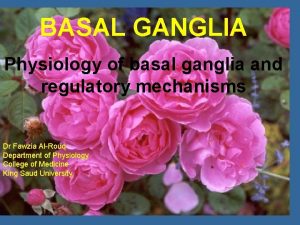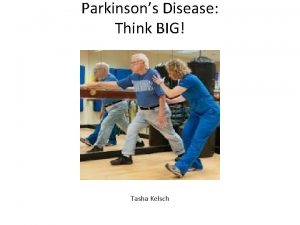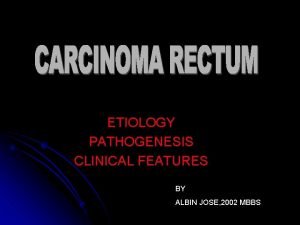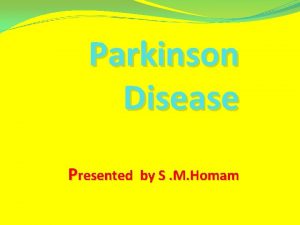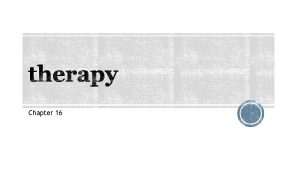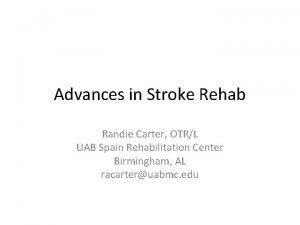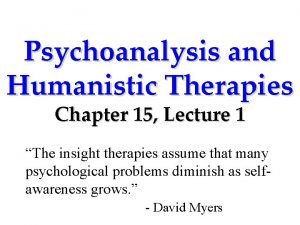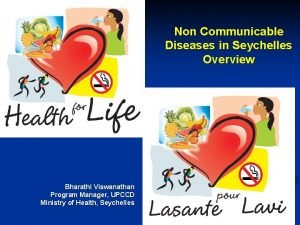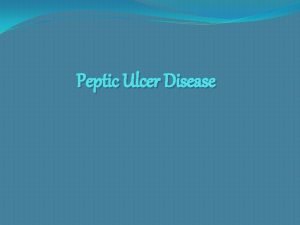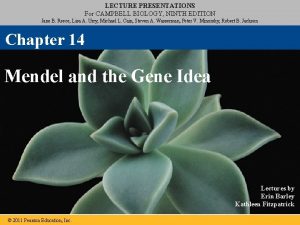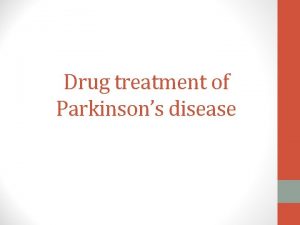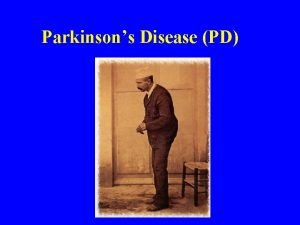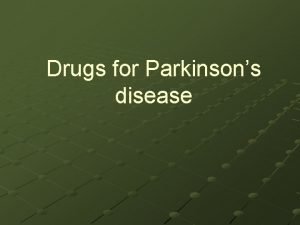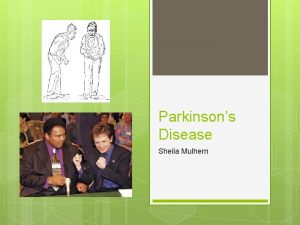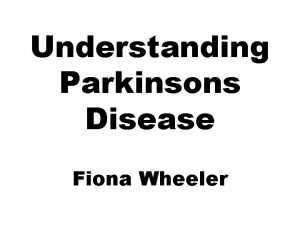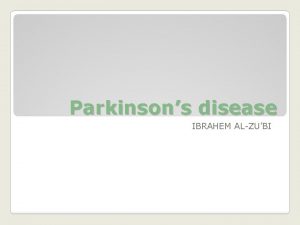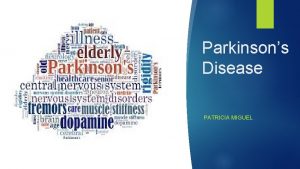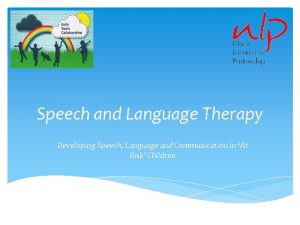Speech and Language Therapy Parkinsons Disease Parkinsons Disease













- Slides: 13

Speech and Language Therapy Parkinson’s Disease

Parkinson’s Disease • Speech • Swallow • Excess saliva/drooling

Speech/Dysarthria • • Quiet voice Monotone voice Slurred speech Breathy/weak voice Pacing control (rushed or too slow) Blank facial expression Reduced body language Difficulty finding the right words (language)

What can help? • Is there an impact for you? • Look at how any change is impacting upon social participation, self-esteem, independence. • Practice exercises to support: – volume/loudness – speech rate – facial expression – articulation – gesture (pointing)

What can help? • Support from friends and family • Environment advice: – Reducing background noise – Important conversations in the morning – Positioning

What can help? • Amplifier • Volume feedback app. • Communication aids: – – – Pen and paper Chart Communication book Technology Alternative means • Text/email

Lee Silverman Voice Treatment • Speech Therapy program specifically for Parkinson’s Disease • Focus on ‘Being Loud’ • Self monitoring of volume • Intensive program – 16 sessions in a month, 4 sessions per week, daily home practice and functional tasks.

Swallow • Pre-oral stage – Bringing food/fluid to the mouth • Oral stage – Chewing • Pharyngeal stage (throat) – Oral residue


Dysphagia • • Difficulty eating and drinking Can cause coughing or discomfort Less enjoyment Slow pace Aspiration Chest infection/aspiration pneumonia Medication

What can help? • Diet modification – Textures – Chopping food – Extra sauce/gravy – Avoid high risk or mixed consistency foods • • • Fluid modification Utensils Smaller amounts, often Posture Timing

Drooling/Sialorrhoea • • Posture Swallow reminder badge or App. Strategies (gum/sugar-free sweet) Refer on to medical team re: medication or procedures

Contact • Open referral system • Self-referral, GP, Day hospital, AHP’s, Specialist Parkinson’s Nurse, Consultant. • Email: Fife-UHB. Fife. SLTReferral@nhs. net • Queen Margaret Hospital – 01383 623623 extn 25954
 Basal ganglia
Basal ganglia Tasha big feet
Tasha big feet Parkinsons plus
Parkinsons plus Rectosigmoid junction
Rectosigmoid junction Amantadin
Amantadin Behcet disease wikipedia
Behcet disease wikipedia Both psychoanalysis and humanistic therapy stress
Both psychoanalysis and humanistic therapy stress Bioness bits cost
Bioness bits cost Humanistic therapy aims to
Humanistic therapy aims to Communicable disease and non communicable disease
Communicable disease and non communicable disease Tripple therapy
Tripple therapy Triple therapy for peptic ulcer disease
Triple therapy for peptic ulcer disease Triple therapy for peptic ulcer disease
Triple therapy for peptic ulcer disease Gene therapy for sickle cell disease
Gene therapy for sickle cell disease
